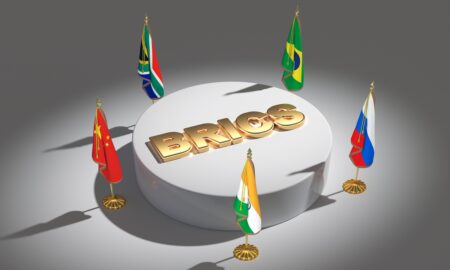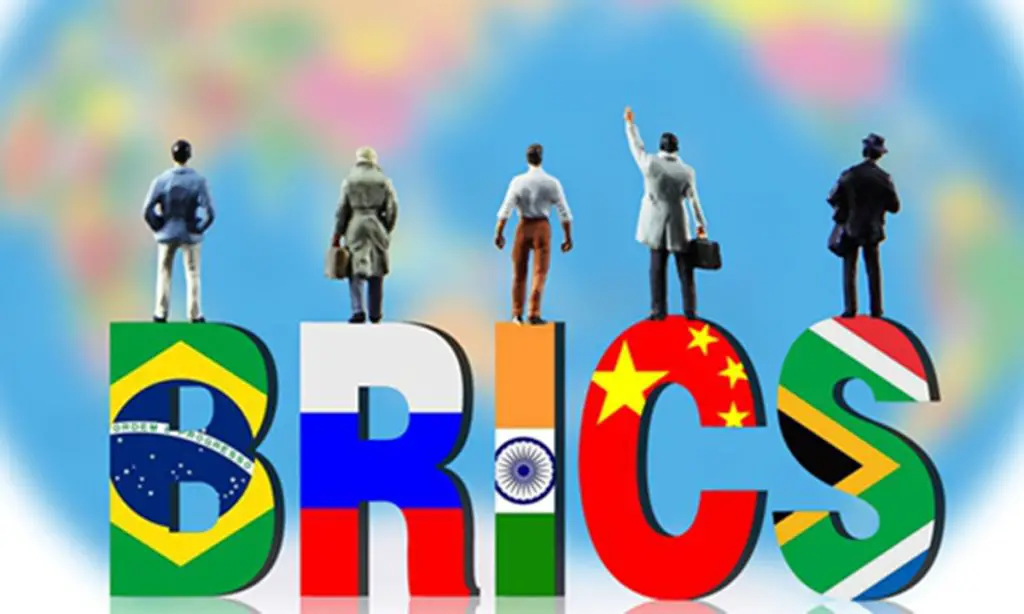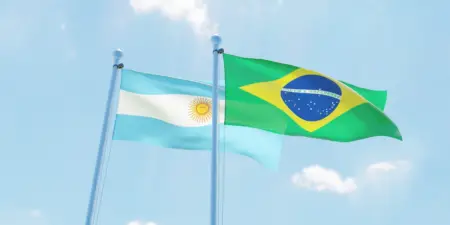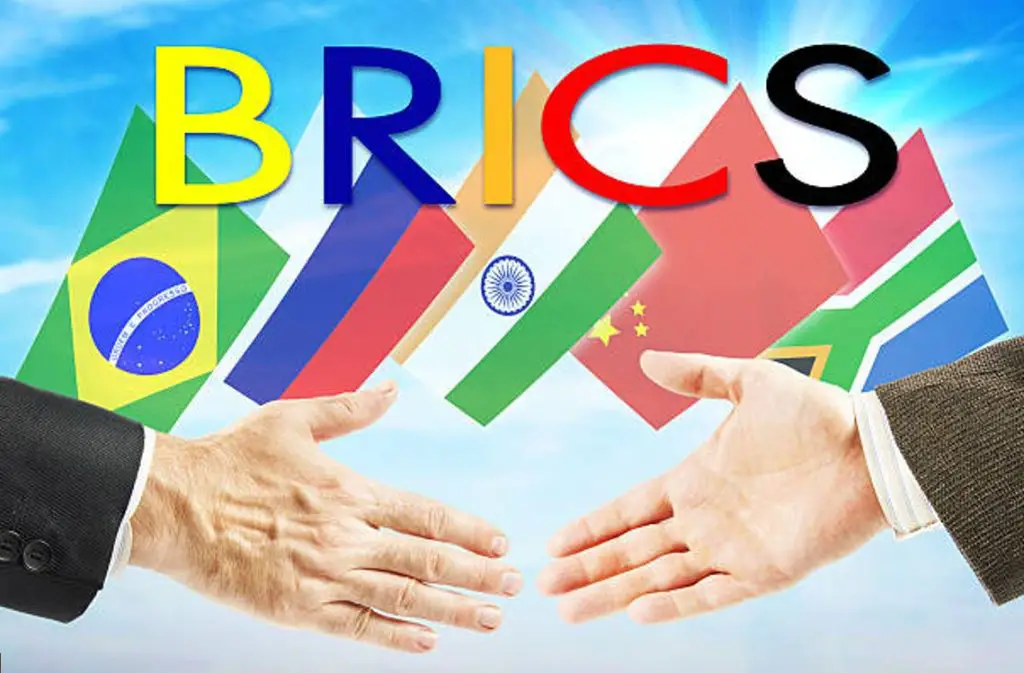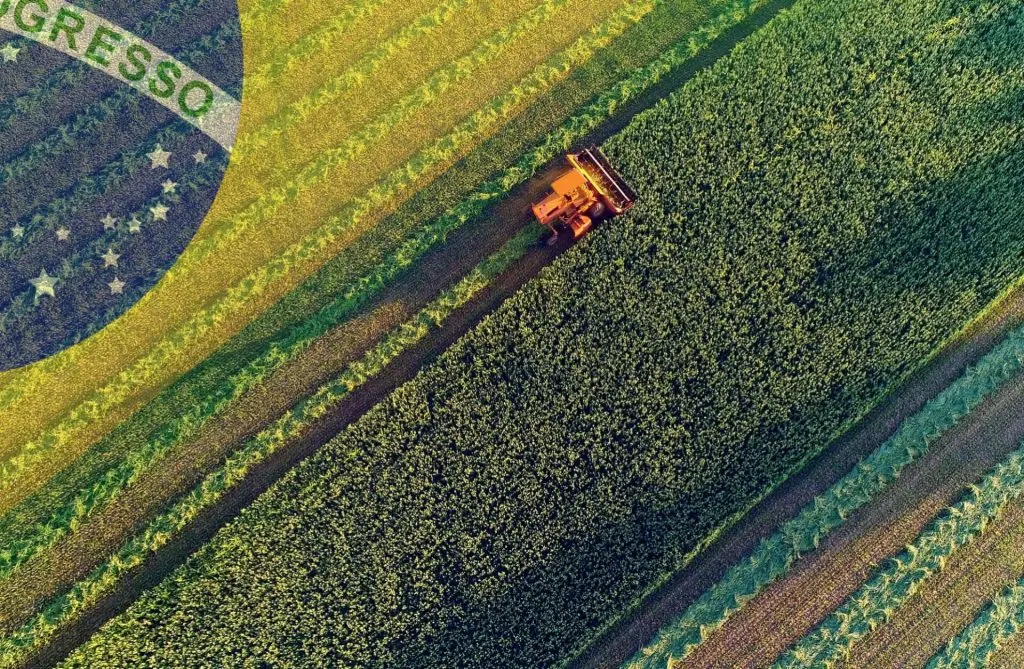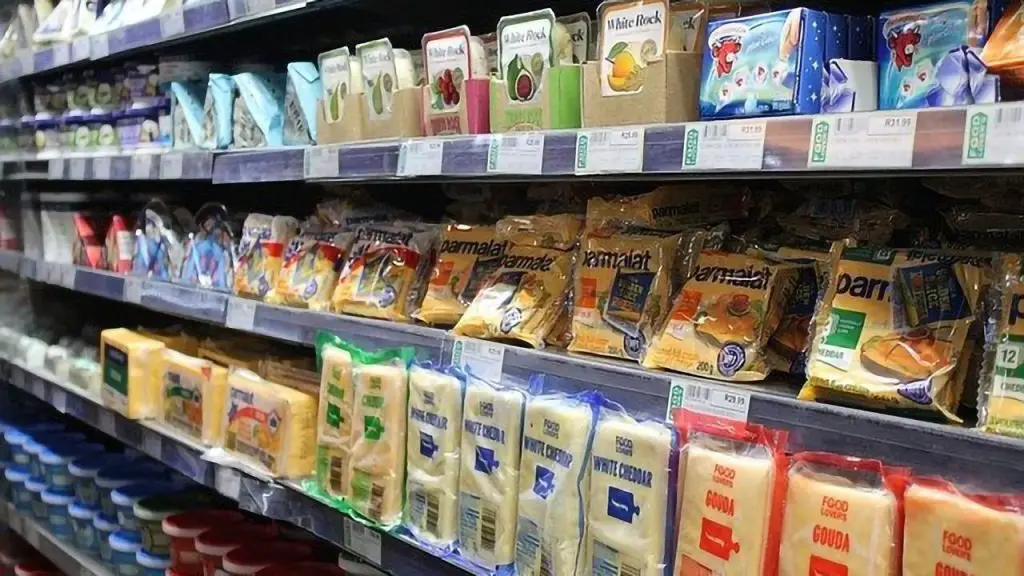- Africa’s new dawn: the rising role of digital and AI in agriculture
- Can Dangote Refinery Transform Africa Energy Ambition
- Gallup Survey: 80 per cent of Kenyan Workers Are Disengaged and Seek New Opportunities
- Madagascar Man Freed from 5KG Tumor After 15-Year Struggle
- How women in Africa are perceived and treated
- Sugar consumption in Kenya to Increase to 1.23 Million Tonnes
- Can Somalia and Turkey Oil deal Bring Change in Somaliland
- Remittances to Kenya dropped to $371.6 million in June, marking a six month low
Browsing: Brazil
The BRICS countries bear a profound responsibility amid a shifting global economic axis. They have the extraordinary chance to reshape the world order, bestowing more significant equity and amplified voice upon the realms of the Global South.
A defining moment in the global economic axis awaits as the BRICS Summit 2023 gathers in South Africa. It signals the member countries to seize this opportunity to shape an unprecedented global economic governance system, an inclusive, all-encompassing, and efficient system.…
- As of 2021, the value of Brazil-Africa trade was $7.4 billion, being 56 percent drop from $17 billion in 2011.
- Brazil’s energy giant Petrobas left Africa in 2020, selling off its subsidiary, Petrobas and Gas BV.
- President Lula: “Brazil would not be what it is today without the participation of millions of Africans”.
The Brazilian Trade and Investment Promotion Agency (ApexBrasil) has mapped out potential investment and trade opportunities across Africa, a pointer to a new era of economic relations between the two regions that literally sit on opposite sides of the south Atlantic Ocean.
The move is part of the organ’s broader efforts to promote Brazilian products and services abroad and attract foreign investments to strategic sectors.
Historically, it is only fair that Brazil increases its economic and bilateral relations with Africa, a continent where over half of her population trace their origin.
After a recent major drop in …
In recent months, the discourse about de-dollarisation has gained momentum. The sanctions against Russia have exposed the danger of over-dependence on the US dollar in international trade. The recent foreign exchange challenges have also recharged the growing efforts to bolster other currencies.
De-dollarisation could soon become a reality. A BRICS substitute to the dollar could enjoy high prospects for success, a former White House adviser, Joseph Sullivan, has noted. Sullivan served as a staff economist at the White House Council of Economic Advisers during the Trump administration. According to him, a potential BRICS currency poses a unique threat to the dominance of the US dollar in international trade.…
The global financial landscape has undergone a remarkable transformation in recent times. Remarkably, the issue of the de-dollarization of international trade is slowly but steadily gathering momentum. A rising trend toward de-dollarization is challenging the longstanding supremacy of the United States in the international financial system. As the dominant global reserve currency, the US dollar remains pivotal in international trade, investment, and financial transactions.…
- The prospect of establishing a common currency will be a top agenda at the upcoming BRICS Summit in Durban, South Africa later this year.
- The Shanghai Cooperation Organization (SCO) is working towards trading in their own national currencies.
- Roughly 40 percent of international trade transactions in goods are invoiced in dollars
The prospect of establishing a common currency will be a top agenda at the upcoming BRICS Summit in Durban, South Africa later this year.
Should the common currency be formed, it will be based on a basket of the currencies of the BRICS countries; the Chinese RMB Yuan, the Russian Ruble, the Indian Rupee, the Brazilian Real, and the South African Rand.
Russian Foreign Minister Sergey Lavrov has on several occasions announced plans by the BRICS countries to unify their currencies and untangle themselves from dollar dependency.
At a media conference during his Africa tour at the start of …
The two south American nations are exploring methods to increase bilateral commerce and wean themselves off the mighty US currency. Its announcement has been widely criticized since they are not a natural fit for a single currency. This is due to one country’s relative economic prosperity and the other’s economic upheaval. This experience between Brazil and Argentina is instructive and illustrative for African nations with comparable aspirations to develop a single currency.
- Brazil and Argentina announced early last month that they would create a joint currency to increase trade and political relations.
- Similarly Africa has expressed the same ambitions at different times. The advent of AfCFTA gives further impetus to the concept that Brazil and Argentina has reignited.
- Brazil and Argentina first came up with the idea of a joint currency in the 1980s but it never took off because economic fundamentals.
- The joint currency experiment by Brazil and Argentina
China presently has the largest sum of foreign exchange reserves in the world. When its over US$ 3 trillion in reserves is added to the reserves of the other BRICS member states the questions as to why they cannot issue their own currency start to grow louder.
Talks of a common currency fizzled out as more pressing national and international matters eclipsed the idea. This year 2022 has seen renewed calls for a common reserve currency emerge once again. This time Russia is leading the call for the creation of a reserve currency that will be an alternative to the United States dollar as a mechanism for the settlement of international transactions.
Russia’s motive for making such a call is obvious, the country has been at war with Ukraine since February 2022. This aggression against Ukraine has earned Russia some of the most stringent economic sanctions in history. What has …
According to Statista, agriculture contributes at least 4% of the annual value added to the gross domestic product of Brazil. It accounts for at least 9% of the people who are employed and able to work. On the face of it reading numbers 4% and 9% seem like they are nominal until one considers the sheer size of the country of Brazil in terms of land mass. Brazil is one of the largest countries in the world in terms of land area. It sits on no less than 8.5 million square kilometres.
Of this land mass, approximately a third is used for agriculture. For perspective’s sake, Brazil is the fifth largest country in the world after Russia, Canada, China, and the United States. The Brazilian Report states that all the countries that make up the European Union would fit inside Brazil’s borders!
To bring the perspective much closer to home, …
The current large-scale transition of the global economy, principally triggered by the current conflict between Ukraine and Russia as well as the standoff between China and the United States, creates a multipolar world map with new centres of power.
Brazil, Russia, India, China, and South Africa, also known as the BRICS nations, have enhanced industrial and financial might and are pushing for a seat at the global new power axis table. These nations are essential participants in international markets for products, services, and money, having a considerable, sometimes decisive, effect on how the global economy operates.…
- The government of Mozambique has ordered retailers of food products to label in Portuguese all their products sold in the country before the end of July 2022
- Portuguese is the official language of six African countries, including Mozambique, Angola, Cape Verde, Guinea Bissau, São Tomé and Príncipe and Guinea Bissau
- Rita Freis said that this is the last year that the government will grant a tolerance for traders to label food products in Portuguese
The government of Mozambique has ordered retailers of food products to label in Portuguese all their products sold in the country before the end of July 2022.
Rita Freitas, the national inspector at the National Inspection of Economic Activities (INAE), announced this during a training seminar on the legal system of package labelling of food products.
Portuguese is the official language of six African countries, including Mozambique, Angola, Cape Verde, Guinea Bissau, São Tomé and Príncipe …





